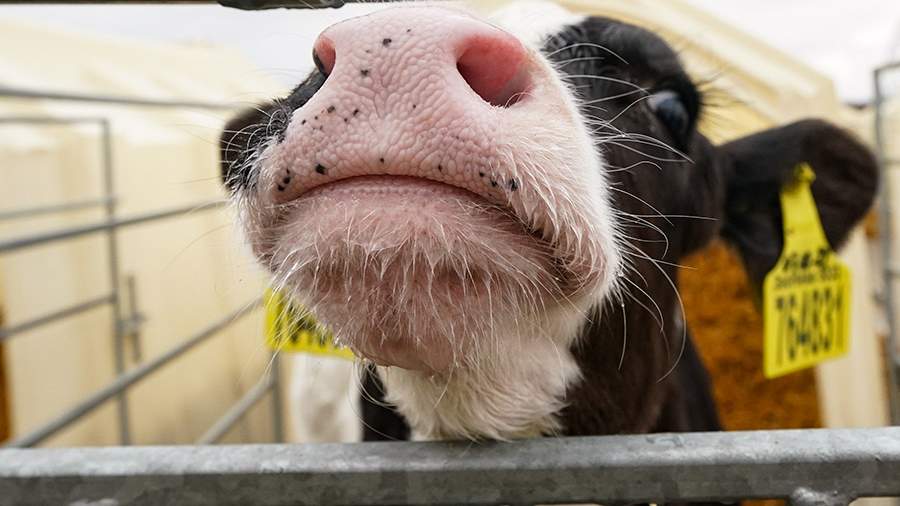February 19 - Vukol Telyatnik: history, traditions and prohibitions of the holiday
- Новости
- Local news
- February 19 - Vukol Telyatnik: history, traditions and prohibitions of the holiday

Every year on February 19, the Orthodox Church honors the memory of the Monk Vukol, Bishop of Smyrna, a disciple of the holy Apostle and Evangelist John the Theologian. In the folk calendar, the holiday is called Vukol Heifer or Zhukoly, and is associated with the beginning of the calving period of cows. In 2025, the date falls on Wednesday. About the history, traditions and notes of this day read in the material "Izvestia".
Vukol Heifer - 2025: the history of the holiday on February 19
St. Vukol lived at the same time as the apostles and was one of the significant figures of early Christianity. With his boundless faith and righteous life, he attracted the attention of John the Theologian, who chose him to be his disciple.
Vukol became the first bishop of the ancient city of Smyrna in Asia Minor and devoted his life to spreading the Christian faith among the pagans. His sermons had a strong influence on the inhabitants of the region, contributing to the mass conversion of people to God.
The Reverend was not only a gifted preacher, but also a wise counselor who saw in people their spiritual potential. Thanks to this ability, Vukol Smyrna discerned in his young disciple Polycarp, who was characterized by piety and asceticism, a future spiritual leader. The saint consistently elevated the young man, who studied the Holy Scriptures fervently and helped those in need, from cleric to presbyter.
Shortly before his death, the Monk received a revelation that it was Polycarp who would be his successor. And so it happened: after Vukol's death, he became the head of the Church of Smyrna, continuing the work of his mentor.
According to legend, after the death of the saint, a myrtle tree with healing properties grew on his tomb. This phenomenon was perceived as a symbol of his spiritual power and blessing.
Traditions of Vukol Telyatnik, celebrated on February 19
In the folk calendar, the day of the saint's memory coincided with the beginning of the period of mass calving of cows, which gave the name of the holiday - Vukol the Heifer. It was believed that the saint was the patron saint of cattle and farmers, and therefore peasants paid special attention to the care of animals on this day and prayed for a good litter.
Cows that gave birth in February were called "Zhukols", hence the second name of the holiday - Zhukol. In the olden days they used to say: "When the Vukols come, all the bugs will calve".
In order for the cows to calve well, they were generously fed, and in the stable they lit aromatic herbs, most often thyme. It was believed that it helped calves to be born strong and milk to be tasty and healthy.
One of the most important rituals of this day was the ritual of praying for milk. It was believed that after the calving of a cow, the twelve first milk yields should not be eaten, and from the thirteenth the housewives cooked porridge, which was covered with hay and recited incantations to increase the fertility of cattle. After that the whole family gathered at the table and enjoyed this dish. The ritual hay was given to the cow, and privoloka (milk foam) - to the newborn calf.
What should not be done on February 19
On February 19, our ancestors had strict prohibitions, which were primarily related to cows and calves. On this day it was impossible to sell milk, as the cow could stop milking. It was strictly forbidden to scold a loudly mooing animal. It was believed that this way it chases away poverty and misfortune from the house.
Also on Vukol it was not supposed to drive away a cat sitting on the threshold of the stable or throw out garbage, as these actions could lead to problems with calving. It was forbidden to stroke the back of a newborn calf or to tell anyone about it, so as not to bring disease upon it.
There were also prohibitions related to the preservation of well-being. Ancestors believed that on February 19, you can not lend money and buy a new purse - these actions could lead to financial problems.
Earlier "Izvestia" told about the traditions and omens of the folk holiday Pochinki.
Переведено сервисом «Яндекс Переводчик»


